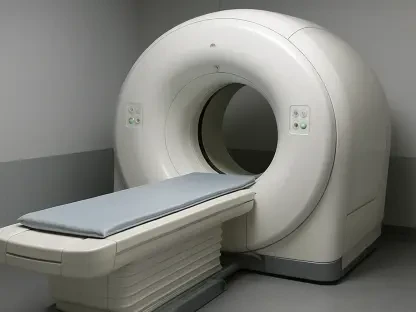As healthcare consolidation continues to reshape the landscape of medical practice in the United States, we sat down with James Maitland, a renowned expert in healthcare policy and economics. With decades of experience analyzing trends in physician practice acquisitions and their broader implications, James offers a deep dive into why these shifts are happening, how they affect costs and care delivery, and what they mean for the future of healthcare.
Can you walk us through the reasons behind the growing trend of physician practices being acquired by health systems, insurers, and private equity firms?
Certainly. The reality is that running an independent practice has become incredibly tough for many doctors. Rising expenses, from staffing to technology, often outpace the revenue they can bring in. On top of that, the administrative burden—dealing with regulations, billing, and compliance—can be overwhelming. Acquisition offers a lifeline by providing scale, which helps with negotiating better payment rates from insurers and accessing costly resources like electronic health record systems. It’s also a practical exit strategy for older physicians nearing retirement, as selling their practice ensures financial security and continuity of care for their patients.
What specific challenges are independent doctors facing that make staying solo so difficult?
Independent doctors are up against a perfect storm of financial and operational pressures. Reimbursement rates from insurers haven’t kept up with inflation or the cost of running a practice. They’re also competing with larger entities that have more bargaining power. Referrals, which are critical for business, can dry up as consolidated systems keep patients within their own networks. It’s a vicious cycle—fewer resources and less leverage make it harder to stay afloat, pushing more doctors toward acquisition as a survival tactic.
How do health systems benefit financially from acquiring physician practices?
Health systems see a clear financial upside. Owning practices means they capture revenue directly from physician services, which is a steady stream of income. More importantly, it drives referrals to their hospitals for diagnostics, surgeries, and other high-cost services. As their market share grows through these acquisitions, they can negotiate higher payment rates from insurers, who have less choice but to comply when a system dominates a region. It’s a strategic move to boost both revenue and influence.
In what ways does this consolidation impact the cost of healthcare for patients and payers?
Unfortunately, the data shows that costs often rise after acquisitions, especially when services shift from a doctor’s office to a hospital setting. Hospital outpatient visits are typically billed at higher rates than independent offices due to facility fees and other charges. Studies cited in recent reports indicate Medicare spending per patient can increase by around 5% for certain procedures post-acquisition. Hospitals often justify this by pointing to increased utilization or investments needed to stabilize acquired practices, but it still hits patients and payers in the wallet.
What are some concerns about the quality of care when hospitals take over physician practices?
There’s a mixed picture here. Some studies suggest quality of care either stays the same or dips slightly after hospital acquisitions, though it’s not universal. A big concern from physician groups is the pressure to see more patients in less time, which can strain the doctor-patient relationship. This push for efficiency might also lead to more referrals for tests or specialist visits, not always because they’re necessary, but because the system benefits financially. For patients, that can mean more out-of-pocket costs and a less personalized experience.
Why are insurers increasingly stepping into the space of acquiring physician practices?
Insurers are looking for leverage and cost control. Owning practices gives them a stronger hand in negotiating prices with other providers, as they can steer patients within their network. They’re also betting on reducing care costs by aligning physicians with value-based care models, where the focus is on outcomes rather than volume. There’s a strategic angle too—especially with Medicare Advantage plans, where documenting patient conditions more aggressively, sometimes called upcoding, can boost reimbursements from the government, though that’s under heavy scrutiny.
How do you see the role of private equity firms evolving in the acquisition of physician practices?
Private equity is becoming a significant player, though their involvement varies by specialty and region. They often target practices with high revenue potential, consolidate smaller ones to build market power, or streamline operations under shared management services. Their model is typically short-term—they buy, optimize, and sell within a few years. While this can bring efficiency, there’s concern about prioritizing profit over patient care, and we’re still learning about the long-term impact on access and quality.
What is your forecast for the future of physician practice acquisitions and healthcare consolidation?
I think we’re going to see consolidation accelerate, especially as financial pressures on independent practices mount and larger entities—whether health systems, insurers, or private equity—continue to see strategic value in acquisitions. The push toward value-based care might temper some cost increases, but only if regulators and policymakers step in to address pricing disparities and ensure quality doesn’t suffer. Without intervention, we risk a healthcare landscape where access for some patients, especially in rural areas, becomes even more limited, and costs keep climbing. It’s a critical juncture, and the next few years will be telling.









